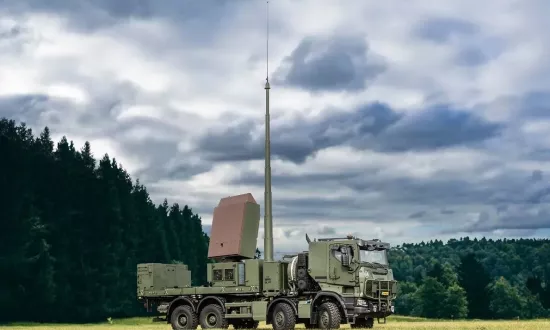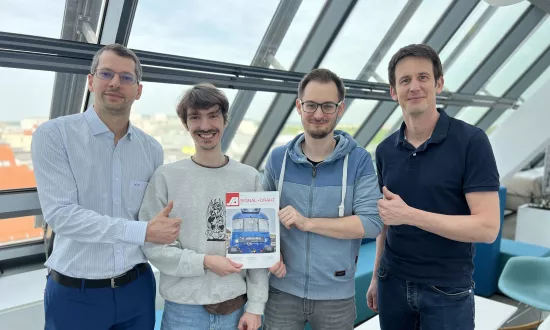The SOS we’re not hearing: part two
Darryn (Daz) Rawlins, Managing Director, Thales Training and Simulation, UK writes about how closer collaboration, both on customer and supplier sides, can bring new opportunities to strengthen national security.
How closer collaboration, both on customer and supplier sides, can bring new opportunities to strengthen national security
As I explained in part one of this article, my key observation is that right now, industry collaboration between defence suppliers simply isn't good enough. The frustration I used to feel, when I was serving, of industry moving too slowly or in-fighting between companies, is still there. As a military man, I didn’t much care about the commercial discussions going on between two parts of an industry consortium on what retentions or liquidated damages there might be. I just wanted my capability delivered on time to the agreed specifications.
And now I’m on the industry side, I'm looking for clear requirements and guidance, open and honest partnerships, and checks and balances along the way from my military end user, with possibly some direction. The end user would call it trying to seek, in all instances, value for money. The industry partner would call it trying to win a competition.
These competing forces create all sorts of challenges on security classifications, on IP, on standardisation, on maximising workshare. And quite often these conspire against each other to prevent companies working with each other. Or they’re played out in the cut and thrust of the highly competitive commercial space – a space which is also characterised by an increasing pace of change. So to maximise the long-term chances of success for Team Tempest, all these barriers to collaboration will have to be ironed out, circumnavigated or put on ice for the duration of the project in the interests of the MoD and a true SoS approach. I, for one, am very optimistic they will.
Every cloud…
And what’s behind my optimism? Two things really. First, I think our industry recognises the potential and opportunity of Team Tempest. If this project succeeds, it will be because disparate and frequently competing parts of the industry have come together in the interests of the end customer. Second, I think this will lead to new, deeper and longer-lasting relationships and new more collaborative ways of working – not just between the MoD and industry, but also between the companies involved. Time will tell of course, but with any luck, the benefits of this more collaborative SoS approach will ripple out to the wider industry and create more opportunities to win more work for companies that can demonstrate their collaborative capabilities alongside their technical ones.
But it will take a conscious effort and require both sides to take responsibility. It’s not just a matter of the customer, MoD, for example, insisting everyone has to collaborate closely. They first need to recognise that many of the companies they deal with have been asked at their behest to compete against each other for years – so asking everyone to all of a sudden play nicely together isn’t quite that simple.
Collaboration is a two-way street…
What’s more, customers will need to articulate crystal-clear requirements underpinned by an equally clear SoS approach. And OEMs and partners will need to come together like never before to deliver on those requirements. This could prove especially challenging in a hyper-competitive, workshare-hungry post-Covid landscape. But to me, Tempest is an opportunity to show our industry, our allies (and our enemies) what’s possible in the name of the noblest of causes: the defence of the country.
…with a nobler goal at stake
Because our end customer isn't a furniture company, it's not a hotel chain or a car manufacturer, it's our Armed Forces. It's about the security of the countries we represent, and that is unquestioningly important from a defence point of view.
So we have to aspire to a more co-ordinated approach to everything, and particularly systems interoperability. And to achieve that will require a change of mindset from the defence industry and customer. One that pushes collaboration and national security higher up the agenda. After all, the supply side doesn't always have to be in competition with each other. Sometimes it makes strategic and timely sense to take a true systems-of-systems approach to delivery. To put collaboration before competition. To put group-interest before self-interest. To put capability and value-for-money before profitability and margins.
By expanding the main consortium to include Thales in the UK, Bombardier Belfast, Collins Aerospace, GE Aviation UK, GKN Aerospace, Martin Baker and QinetiQ, Team Tempest is bringing in further specialist expertise to expand and possibly expedite the programme’s capability. What’s clear to me is that it’s incumbent on all team members to have a really honest discussion amongst themselves to see who’s going to be the ‘best athlete’ for any given area. To that extent, Team Tempest will be a kind of work-in-progress case study on taking an SoS approach – not just for those involved, but for the whole defence industry.
What are your views on post-Covid collaboration in the defence industry, and is a true SOS approach possible? I’d love to know your views and hear about your experiences, so please do comment using the contact details below.


